Early diagnostic evaluations for autism spectrum disorder set a path for the course in which development will take in a child. If children are communicating, interacting socially, or behaving differently, early evaluation unlocks the right doors toward the right support. Early diagnosis does not label a child but empowers a family with clarity, direction, and resources which may make real improvements in the long-term outcome. Understanding the advantages of early evaluation will help families make informed decisions and make certain children receive guidance through the most important developmental years.
If you require ABA therapy services in North Carolina, we are here to offer your child caring, effective, personalized services. we are here to offer your child caring, effective, personalized services. Our team works on developing skills in communication, social interaction, and daily living-important for a fulfilling life-through systematic evidence-based programs, individually designed with consideration for each child’s needs. We offer in-home and center-based services so each family gets the needed guidance and care.
1. Early Access to Intervention Services
In fact, one of the most important benefits of an early diagnostic evaluation in autism is that intervention services can be immediately provided. Most children show their early signs well in advance of starting school, and such years of life are highly formative. The earlier it is evaluated, the sooner the child can get support during the time when their brain is developing at such a fast pace. Early intervention improves communication, living skills, social interaction, behavior, and learning readiness. This will go a long way in making a great difference when the child grows up and goes into formal education.
2. Better Developmental Outcomes
Research has continuously shown that the earlier the children are helped, the better their progress will be in the future. Based on this early assessment, professionals can note strengths, difficulties, and patterns of learning among others, after which plans that suit each of the needs of the children can be put in place accordingly. For instance, the early learning support given to children helps them build confidence and independence; the sooner this is done, the better the child can build a firm foundation necessary for growth in the future.
3. Clarity to Parents and Caregivers
For many parents, questions about a child’s development may remain for years. Early evaluation answers these questions, and it is a source of relief, understanding, and direction. Rather than guessing why a child is behaving or learning differently, the families are given specific guidance about what their child needs. This clarity reduces confusion, stress, and anxiety. Parents can start channeling energy where it matters most-supporting their child with strategies that work. Early evaluation connects families with professionals who can explain what to do next, how programs work, and what resources are available.
4. A Personalized Plan
Every child is unique, and early assessment will tell what works most productively for him or her. Specialists assess how a child communicates, learns, their behavior, and how he or she interacts with others in order to construct an individualized plan. The plan generally includes recommendations on therapies, learning activities, strategies that can be used by the family, and preparation for school. Children will learn more and faster once they get supports tailored to their needs. Personalized planning helps caregivers and teachers understand the best ways of supporting the child in daily life.
5. Easier Preparation for School
For some children, getting started at school can be tough, mainly if they need extra support. Early evaluation for autism means the child receives suitable accommodations at school, learning plans, and classroom strategies. If schools learn early what a child may need, then schools can plan and mobilize resources for them, such as individualized learning plans, extra guidance, or structured learning support. The period it takes for the child to get used to life in school is minimized; frustration is reduced, and the child is prepared for academic success. Early assessment will also provide parents with ample time to work along with teachers in developing a supportive educational trajectory.
6. Enhancing Communication Skills
Communication is one of the most important areas of development in children at their tender years. Early assessment, therefore, offers the professional an opportunity to detect problematic communications early and makes recommendations on interventions that will work best. With the right support, children will learn to communicate, perceive others, and draw closer to the people surrounding them. Among those factors that come with improved communication are reduced frustration, increased confidence, and interaction with family and peer groups. If this development starts off early enough, often children make remarkable progress as they grow.
7. Better Behaviour and Emotional Support
Some children have problems with behavior, flexibility, or control of their emotions. Early evaluation pinpoints why this might be the case. Instead of looking at the behavior, professionals take the approach of what the child is trying to communicate. Once the underlying reason becomes clear, families and professionals can implement strategies to support the child, who then will start to feel calm, understood, and supported. This means fewer battles each day and a child who learns healthier ways to deal with frustrating situations. Early emotional resilience from support serves them well in both school and home environments.
8. Building Stronger Family Understanding
Early evaluation supports not only the child but also all of the family. Parents who understand how their child learns and interacts can respond with patience, knowledge, and confidence. Most families feel much more cohesive and prepared when clear guidance is available to them. Families are also afforded opportunities through early evaluation to learn new strategies, participate in training, and connect with support networks. In turn, this allows the caregiver to establish a consistent, nurturing environment within the home that is so very crucial for development.
9. Access to Community and Educational Resources
Most programs, supports, and benefits do require a formal evaluation prior to qualifying a child. Early assessment is how families get the green light to access such resources without any delay. These can include early intervention programs, therapy services, school support plans, community programs, and family guidance. The sooner they get access to them, the more time the child gets to use to their benefit. Often, this turns into a significant source of strength for both the child and family.
10. Long-Term Planning and Future Success
Early evaluation provides a long-term roadmap to guide the child’s development through early childhood into school years and onward. It aids the family in making informed decisions on issues like therapy, schooling, activities, and daily routines. A clear understanding of the child’s needs avoids many challenges in the future that may affect every stage of life’s development. With early evaluation, children are set up to thrive while growing older.
Conclusion
The most critical steps a parent can take when developmental differences are noted are early autism diagnostic evaluation. Early evaluation brings clarity and direction, providing access to services that can help make a lasting difference in the life of a child. It supports communication, learning, behavior and emotional well-being and readies children for school. Most importantly, it empowers families with knowledge and allows children to reach their full potential. And when families act early, they give their child the gift of strong support and a brighter future.


